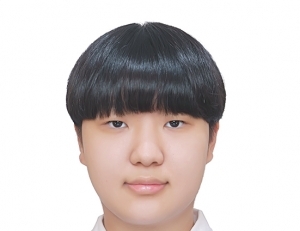- Why Are Banks Unsatisfied?
As the Bank of Korea is expected to continue to raise interest rates in 2022, people are putting more money into savings. Among them, the Youth Hope Savings program, which ended its subscription on March 4, is a hot product that stands out. 2 million people gathered for a preview service conducted for a preliminary demand survey alone to inquire about membership qualifications. On the first day of applications, banks' servers crashed due to high demand, causing complications such as users not being able to fill out applications. Because of this, the government extended the subscription period of the Youth Hope Savings program, which was initially planned as a five-part system, by one week without restriction.
Youth Hope Savings accounts are products designed to encourage young people taking their first steps into society to save a large amount of money. If you save 500,000 won per month for two years, you can receive savings incentives paid by the government in addition to interest. Any young person aged 19 to 34 years old can join as of the date of subscription with a total personal income salary of 36 million won or less, and the military service performance period is not included. Young people who have failed to join are expressing great regret because it offers a high interest rate of 10% per year, including tax-free benefits, savings incentives, and preferential interest rates for each bank. However, banks are also dissatisfied with this program. What's the reason?
The reason why the Youth Hope Savings accounts are popular is because of higher interest rates than other deposit products. The bank's regular deposit rate is 3.45% on average, while the Youth Hope Savings is a product with a very high interest rate of 5-6% even excluding the government's savings incentives. What exactly does interest rate mean here? Interest rates are similar to usage fees for money. Interest rates are the price banks pay to customers in return for depositing money in banks. Therefore, interest rates are also affected by the supply and demand principles of the market economy. South Korea has adhered to its low-interest policy to encourage loans. As a result, the average interest rate, which was 13.31% in the 1990s, has remained at 2% since 2010. Sometimes it was a net loss to leave money in banks as interest rates failed to keep up with inflation. Such a state in which the real interest rate is zero is called the zero interest rate. In the era of zero interest rates, high interest rates on Youth Hope Savings accounts are bound to attract consumers' attention.
The government set aside a total of 45.6 billion won which can accommodate 380,000 users as a budget for savings incentives within the first policy, but the final budget increased much more than this. The government claims that the government's savings incentives will be paid at the expiration of two years, so there is no problem if the budget is not set up immediately this year. However, interest rates paid by banks are not related to maturity. Therefore, banks lose more money the more they sell the Youth Hope Savings products. So, some people complained that "the government takes credit, but the bank bears the burden." On the other side of this opinion, there is a counterargument that "the interest income earned by banks alone reached 32 trillion won last year, and interest expenditures from the Youth Hope Savings are expenditures for the public interest."
"The government originally predicted less than 380,000 subscribers because only those with an annual income of less than 36 million won can subscribe to the Youth Hope installment savings and it is not easy for low-income individuals to contribute 500,000 won a month. However, the number of applications was much higher than anticipated as demand for safe investment products such as long-term deposits has increased as opposed to demand for high-risk investment products such as real estate and Bitcoin. Financial authorities are considering accepting additional subscriptions for mere beginners who have missed the opportunity since July. Therefore, if you missed the first opportunity to join, you can wait for another chance to apply this July."
76th Reporter • KIM HYEON A • hangitup@kyonggi.ac.kr
- TAG
-
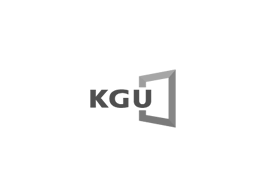 Freedom Given to Youth: An Opportunity for Choice or a Burden of Constraint?
“Are we truly free today?” Classical literature is far more than time-honored stories. It offers profound insights into human nature and society that transcend time, remaining a valuable resource for examining the challenges our world faces today. This article will draw on George Orwell’s 1984 and Charles Dickens’ Oliver Twist to explore the contemporary issues of youth housing and the emergence of a surveillance society ...
Freedom Given to Youth: An Opportunity for Choice or a Burden of Constraint?
“Are we truly free today?” Classical literature is far more than time-honored stories. It offers profound insights into human nature and society that transcend time, remaining a valuable resource for examining the challenges our world faces today. This article will draw on George Orwell’s 1984 and Charles Dickens’ Oliver Twist to explore the contemporary issues of youth housing and the emergence of a surveillance society ...

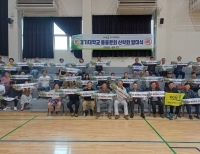 [단신] 산악회, 본교 동문의 버팀목이 될 수 있도록
[단신] 산악회, 본교 동문의 버팀목이 될 수 있도록
 [사회메인] 노인 인구 1,000만 시대, 준비 없는 사회가 불안해
[사회메인] 노인 인구 1,000만 시대, 준비 없는 사회가 불안해
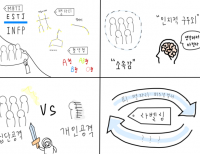 [네컷만화] 라벨링 문화
[네컷만화] 라벨링 문화
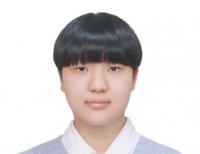 [진리터] 결국 우리 모두 돌아볼 것이니
[진리터] 결국 우리 모두 돌아볼 것이니

 목록
목록





